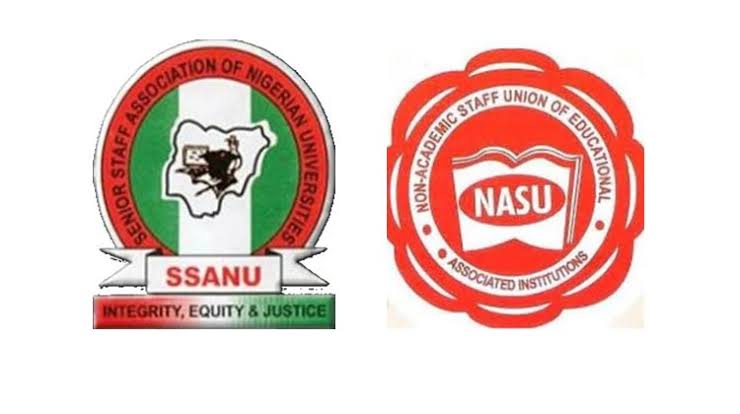The Non-Academic Staff Union of Educational and Associated Institutions (NASU) has declared that the Federal Government’s persistent threat to invoke the “No Work, No Pay” policy will not deter workers from exercising their constitutional right to go on strike when necessary. The union said the rule, which is being repeatedly used as a weapon of intimidation, cannot subdue workers’ collective demand for justice, fairness, and improved welfare.
Speaking during a presentation titled “Recurring Threats by Government Officials to Enforce the ‘No Work, No Pay’ Policy: A Call for Justice, Collective Bargaining and Dignity of Labour,” NASU General Secretary, Peters Adeyemi, strongly condemned the Federal Government’s attitude towards labour disputes. He said that government officials often misuse the “No Work, No Pay” provision in the Trade Disputes Act as a means of silencing legitimate industrial action rather than addressing the root causes of workers’ grievances.
According to Adeyemi, while Section 42(1)(a) of the Trade Disputes Act (Cap. T8, Laws of the Federation of Nigeria 2004) provides that any worker who takes part in a strike shall not be entitled to wages or remuneration during that period, the law should not be interpreted in isolation. He stressed that other sections of the Act, particularly Sections 18 to 20, clearly lay out processes such as mediation, arbitration, and conciliation that must be exhausted before a strike can be declared lawful.
He argued that the Federal Government’s selective enforcement of the “No Work, No Pay” rule—without honouring agreements or following due process—amounts to injustice and bad faith. Adeyemi stated that the government cannot continue to expect compliance from workers when it constantly fails to meet its own obligations, including prompt salary payments, implementation of negotiated allowances, and adherence to collective bargaining outcomes.
“The government cannot continue to hide behind the ‘No Work, No Pay’ rule as though it were the only section of the labour law that exists,” Adeyemi said. “If they want to apply the law, they must also respect the parts that require negotiation, arbitration, and mutual understanding before taking any punitive action against workers. Justice must be two-sided.”
Adeyemi further accused government officials of applying double standards, pointing out that while they are quick to enforce “No Work, No Pay,” they often ignore the corresponding reality of “No Pay, No Work.” He explained that many workers are forced into strikes after being denied their wages for months or when the government fails to fulfil agreements that have already been signed.
He noted that the union does not embark on strikes frivolously or out of excitement, but only as a last resort after every channel of peaceful negotiation has failed. According to him, most strike actions in the education sector are triggered by the government’s refusal to honour memoranda of understanding, non-payment of earned allowances, or unilateral decisions that affect the welfare of workers.
“The truth is that no union wants to go on strike,” he continued. “Strikes disrupt our lives and the system we work in, but when dialogue fails, when promises are broken, and when workers’ rights are repeatedly violated, industrial action becomes inevitable.”
Adeyemi warned that any attempt by the government to intimidate or criminalise union activities would be met with strong resistance, as NASU remains committed to protecting the dignity and rights of its members across the education sector. He called on the Minister of Labour and Employment to prioritise genuine dialogue over threats, adding that the government should lead by example in upholding the principles of collective bargaining.
He further urged the National Assembly to intervene by reviewing sections of the Trade Disputes Act that have become outdated, particularly those that are often misused to suppress workers’ freedom to protest or negotiate fair conditions. According to him, the industrial relations system in Nigeria requires urgent reform to reflect modern realities and ensure balance between government authority and workers’ rights.
Broader Implications for Nigeria’s Education Sector
The ongoing dispute between NASU and the Federal Government underscores a deeper crisis within Nigeria’s education system. Over the years, the sector has been plagued by recurrent strikes, delayed salaries, underfunding, and neglect of staff welfare. Analysts warn that unless the government adopts a proactive and transparent approach to industrial relations, the system will remain unstable and productivity will continue to decline.
Observers also note that the continuous threats of “No Work, No Pay” could fuel greater resentment among unions in universities, polytechnics, and colleges of education. Many workers see the rule as an act of provocation, especially when the same government owes months of arrears or fails to implement past agreements.
Industrial experts have stressed that effective governance in the education sector requires more than the enforcement of punitive laws. They argue that sustainable peace can only be achieved when both parties respect the spirit of negotiation and honour their commitments.
“The government’s posture towards labour has to change,” said a labour analyst in Abuja. “You cannot continue to talk about discipline and productivity while workers are demoralised, underpaid, and constantly threatened with salary cuts. Industrial peace is built on trust, not fear.”
NASU’s Call for Fairness and Dignity of Labour
NASU has consistently positioned itself as one of the strongest defenders of non-teaching staff in Nigeria’s tertiary institutions. The union insists that the struggle for fair wages and respect in the workplace is not just a fight for its members but a fight for the future of Nigeria’s education. Adeyemi reiterated that the dignity of labour must be upheld at all times, warning that democracy itself becomes endangered when workers are silenced or punished for demanding fairness.
He appealed to the government to show leadership by example, ensuring that labour disputes are handled through dialogue and genuine consultation rather than through threats and sanctions. He added that the education sector is too critical to be repeatedly disrupted by conflicts that can be prevented through honest engagement.



